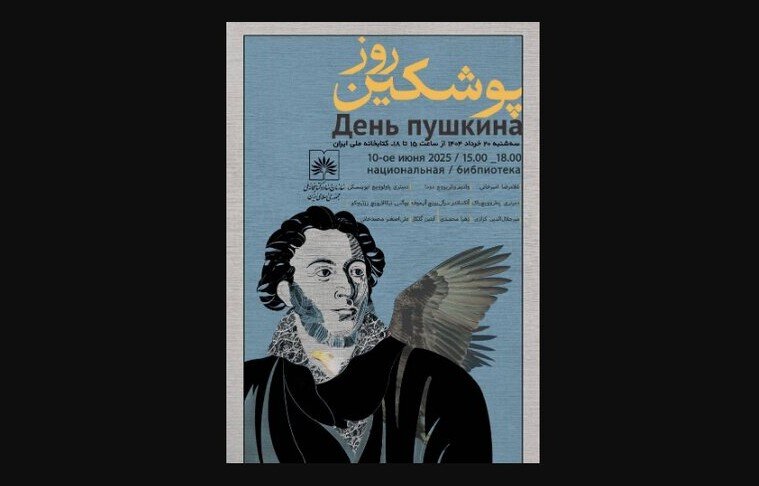Commemoration of Alexander Pushkin held at Iran's National Library

TEHRAN – In an effort to strengthen cultural ties between Iran and Russia, a ceremony honoring the legendary poet and pioneer of modern Russian literature, Alexander Pushkin, was held on Tuesday at the International Conference Hall of the National Library and Archives of Iran.
The cultural event was attended both in person and online by distinguished Russian and Iranian figures, including diplomats, scholars, literary researchers, and enthusiasts of comparative literature and culture, ISNA reported.
The program included specialized lectures, presentations on Pushkin’s works, and discussions on comparative literature, among other activities, the report added.
This event was initiated as part of the expanding cultural collaboration between Iran and Russia, following agreements signed by the heads of their national libraries at the BRICS Cultural Summit in 2024.
During that summit, the directors of Iran’s National Library and Archives and the Russian State Library signed a memorandum of understanding, agreeing to hold reciprocal commemorations of prominent literary figures from both countries — notably Alexander Pushkin in Tehran and Persian poet Nizami Ganjavi in Russia.
Alexander Pushkin (1799–1837) is widely regarded as one of Russia’s greatest poets and a foundational figure in Russian literature. Often called the Sun of Russian Poetry, Pushkin’s work has had a profound influence on the development of Russian language, culture, and literary tradition. Born into a noble family in Moscow, he displayed remarkable literary talent from a young age, producing poetry and stories in his early years.
Pushkin’s writing is celebrated for its lyrical beauty, innovative use of language, and deep exploration of human nature. His most famous works include the narrative poem “Ruslan and Ludmila”, the novel in verse “Eugene Onegin”, and numerous short stories and fairy tales. “Eugene Onegin”, in particular, is considered a masterpiece of Russian literature, blending poetry with social commentary and character studies. Pushkin’s style combined classical influences with Romanticism, emphasizing emotion, individualism, and national identity.
Aside from his literary achievements, Pushkin was also a keen observer of Russian society and culture, often reflecting on issues of identity, freedom, and social justice. His work challenged the conventions of his time and helped shape the modern Russian literary language, making literature more accessible to ordinary people.
His influence extended beyond poetry, inspiring countless writers, playwrights, and artists, and fostering a sense of national pride that persists to this day.
Despite his relatively short life—he died at the age of 37—Pushkin’s influence endures. His innovative approach to storytelling and poetry set the stage for future generations of Russian writers, including Dostoevsky and Tolstoy. Today, Pushkin remains a national icon and a symbol of Russian literary excellence and cultural pride, with his legacy honored through numerous monuments, festivals, and educational institutions dedicated to his memory. His work continues to be studied and celebrated worldwide, cementing his place as a towering figure in world literature.
SAB/
Leave a Comment